Equine
Explore the world of equine care, training, and nutrition. Our blog provides insights and practical tips for horse owners and enthusiasts, ensuring your equine companions thrive.

Fall Horse Deworming
A Comprehensive Guide to Protecting Your Equine Companion
As the vibrant colors of fall begin to paint the landscape, horse owners must turn their attention to an important seasonal task: deworming. Fall is a crucial time to address parasite control, especially targeting specific worms that are more prevalent during this time of year. In this blog post, we’ll explore why fall deworming is essential, the types of worms that pose a threat, and the best practices for keeping your horse healthy as the seasons change.
Why is Fall Deworming Important?
During the warmer months, horses graze on pastures where they can easily ingest parasite larvae. As temperatures drop in the fall, these larvae mature into adult worms, which can then cause a variety of health issues in your horse if left untreated. Fall deworming helps to reduce the parasite load before winter, ensuring that your horse enters the colder months in the best possible health.
Understanding the Key Parasites
Several parasites should be targeted during fall deworming. Understanding these worms and their lifecycle will help you choose the right deworming strategy.
Bots: Botflies lay their eggs on the horse's legs, chest, and face during the summer. When the horse licks these areas, the eggs are ingested, and the larvae develop in the horse's stomach. In the fall, after the first frost has killed off the adult botflies, it's essential to deworm to eliminate the larvae before they can cause gastric issues.
Tapeworms: These parasites are spread by mites that live in the pasture. Horses ingest the mites while grazing, and the tapeworms attach to the horse’s intestinal wall. Tapeworm infestations can lead to colic, making it vital to include a tapeworm-specific dewormer in your fall regimen.
Small Strongyles: These worms are among the most common equine parasites. They can cause damage to the intestinal wall, leading to weight loss, diarrhea, and colic. Small strongyles can become encysted in the horse’s gut, making them harder to treat. Fall deworming should focus on eliminating both adult worms and encysted larvae.
Large Strongyles: Although less common due to modern deworming practices, large strongyles can cause severe damage, including blood clots, aneurysms, and colic. It’s still important to use a dewormer that targets this parasite, especially if your horse has not been on a consistent deworming schedule.
Best Practices for Fall Deworming
To ensure effective parasite control, follow these best practices for fall deworming:
Consult with Your Veterinarian: Before starting any deworming program, consult with your veterinarian. They can recommend the most appropriate dewormer based on your horse’s age, health status, and the parasites common in your area. A fecal egg count test may also be recommended to determine the specific parasites present and the severity of the infestation.
Choose the Right Dewormer: Not all dewormers are created equal. In the fall, it’s important to select a broad-spectrum dewormer that targets bots, tapeworms, and strongyles. Common choices include ivermectin combined with praziquantel, which effectively treats a wide range of parasites.
Administer Dewormer Correctly: Ensure you administer the correct dosage based on your horse's weight. Underdosing can lead to drug resistance, while overdosing can cause health problems. Use a weight tape or scale to accurately measure your horse's weight and follow the dewormer’s instructions carefully.
Timing is Key: Deworm your horse after the first frost, which kills off botfly populations. This timing ensures that any bot larvae inside your horse are targeted effectively. If you're dealing with a larger herd, plan your deworming schedule so that all horses are treated around the same time.
Monitor and Adjust: After deworming, keep an eye on your horse for any signs of adverse reactions. In addition, continue to monitor fecal egg counts periodically to assess the effectiveness of your deworming program and adjust your approach as needed.
Maintain Good Pasture Management: In addition to deworming, maintaining good pasture management practices is crucial for reducing parasite loads. Rotate grazing areas, remove manure regularly, and avoid overgrazing to minimize the risk of parasite exposure.
The Role of Deworming in Overall Health
Fall deworming is not just about eliminating parasites; it's about setting your horse up for a healthy winter. Parasites can weaken your horse's immune system, making them more susceptible to illness during the colder months. By reducing the parasite burden in the fall, you help ensure that your horse maintains good condition, energy levels, and overall well-being as they transition into winter.
Conclusion
Fall deworming is a critical component of equine care, protecting your horse from the harmful effects of parasites that thrive during the warmer months. By understanding the types of parasites that are prevalent in the fall and following best practices for deworming, you can help your horse enjoy a healthy, comfortable season. Always consult with your veterinarian to create a deworming plan tailored to your horse's specific needs, and remember that parasite control is just one part of maintaining your horse's health as the seasons change.
